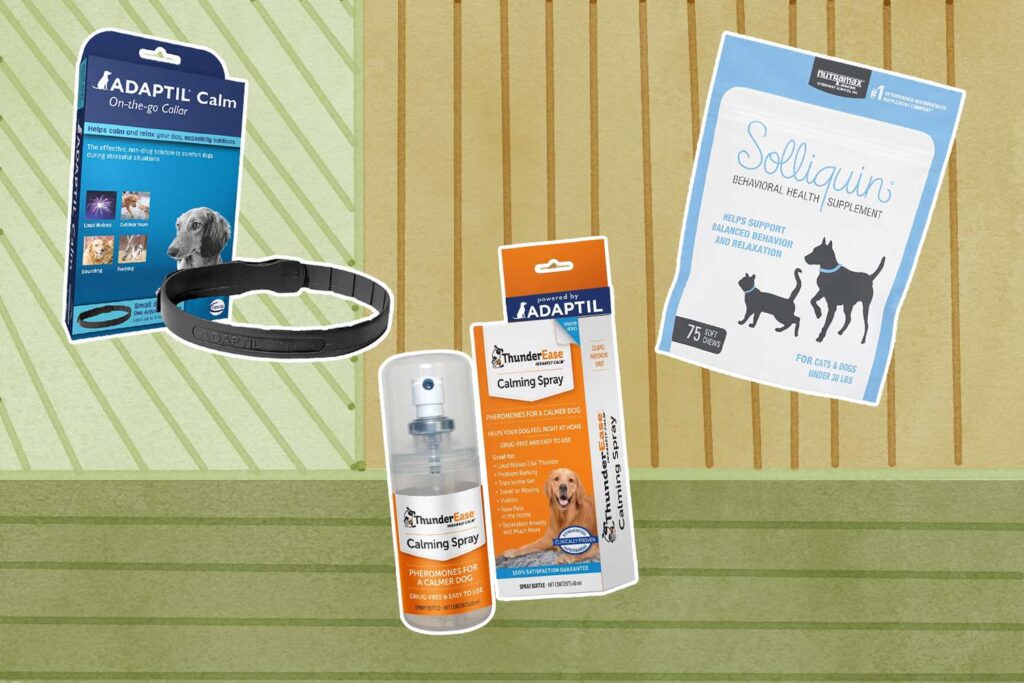
Dog anxiety can be a challenging issue for pet owners to handle. From excessive barking and destructive behavior to trembling and aggression, anxious dogs can display a range of distressing symptoms. In such cases, dog anxiety medication can offer relief and improve their overall well-being. This article aims to provide a comprehensive understanding of dog anxiety medication and its benefits.
Table of Contents
What is Dog Anxiety Medication?
Dog anxiety medication refers to pharmaceutical treatments specifically designed to alleviate anxiety and stress in dogs. These medications target the underlying causes of anxiety and help regulate the dog’s brain chemistry, promoting a sense of calmness and relaxation. They can be prescribed by veterinarians and come in various forms, including tablets, capsules, and liquids.
Types of Dog Anxiety Medication
There are different types of dog anxiety medication available, each with its own mechanisms and benefits. These include:
a) Selective Serotonin Reuptake Inhibitors (SSRIs): SSRIs work by increasing the levels of serotonin in the brain, which helps regulate mood and anxiety.
b) Benzodiazepines: Benzodiazepines act as tranquilizers, providing immediate relief from acute anxiety symptoms.
c) Tricyclic Antidepressants (TCAs): TCAs alter the levels of neurotransmitters in the brain to reduce anxiety symptoms over time.
d) Natural Remedies: Some pet owners prefer natural remedies, such as herbal supplements or pheromone diffusers, which can help calm anxious dogs.
Benefits of Dog Anxiety Medication

Dog anxiety medication offers several benefits for both the dogs and their owners. These benefits include:
a) Reduced Anxiety Symptoms: Medication can significantly reduce the frequency and intensity of anxiety-related behaviors, helping dogs feel more comfortable and secure.
b) Improved Quality of Life: By alleviating anxiety, dogs can experience a better quality of life, as they are more likely to engage in normal activities and enjoy social interactions.
c) Enhanced Training Opportunities: Dogs on anxiety medication are more receptive to training and behavior modification programs, as they are better able to focus and learn.
d) Reduced Risk of Complications: Untreated anxiety can lead to various health issues, such as stress-related illnesses or injuries caused by destructive behavior. Medication helps minimize these risks.
Determining the Right Medication for Your Dog

Finding the right anxiety medication for your dog requires consultation with a veterinarian. The vet will consider factors such as the dog’s age, breed, medical history, and severity of anxiety symptoms. They may also conduct additional tests to rule out underlying medical conditions that could be contributing to the anxiety. Based on these assessments, the vet will recommend the most appropriate medication and dosage for your furry companion.
Proper Administration and Monitoring
Administering dog anxiety medication as prescribed is crucial for optimal results. Follow the veterinarian’s instructions carefully, ensuring the correct dosage and timing. Regular check-ups and open communication with your vet are essential for monitoring your dog’s progress. If any adverse reactions or unexpected changes occur, consult the vet promptly for adjustments or alternative options.
Complementary Therapies and Lifestyle Changes

In conjunction with anxiety medication, incorporating complementary therapies and making certain lifestyle changes can further support your dog’s well-being. These include:
a) Behavior Modification: Working with a professional dog trainer or behaviorist can help address underlying behavioral issues contributing to anxiety.
b) Exercise and Mental Stimulation: Regular physical exercise and mental enrichment activities can help reduce anxiety levels by promoting relaxation and redirecting energy.
c) Environmental Modifications: Creating a calm and safe environment for your dog, such as using noise-canceling devices or providing a cozy den, can help alleviate anxiety triggers.
d) Holistic Approaches: Alternative therapies like acupuncture, massage, and aromatherapy can be considered under the guidance of a qualified practitioner.
Conclusion
Dog anxiety medication can be a valuable tool in helping anxious dogs lead happier and healthier lives. By understanding the different types of medication, their benefits, and proper administration, pet owners can make informed decisions in collaboration with their veterinarians. It is essential to remember that anxiety medication should be part of a comprehensive approach that includes behavioral interventions, lifestyle modifications, and ongoing monitoring. With the right combination of care, love, and support, dogs with anxiety can thrive and enjoy a more relaxed existence.
Learn about : Embrace sustainable results on your weight loss journey with Eastern weight loss methods, harmonizing nutrition, mindfulness, and holistic practices for long-term well-being.






